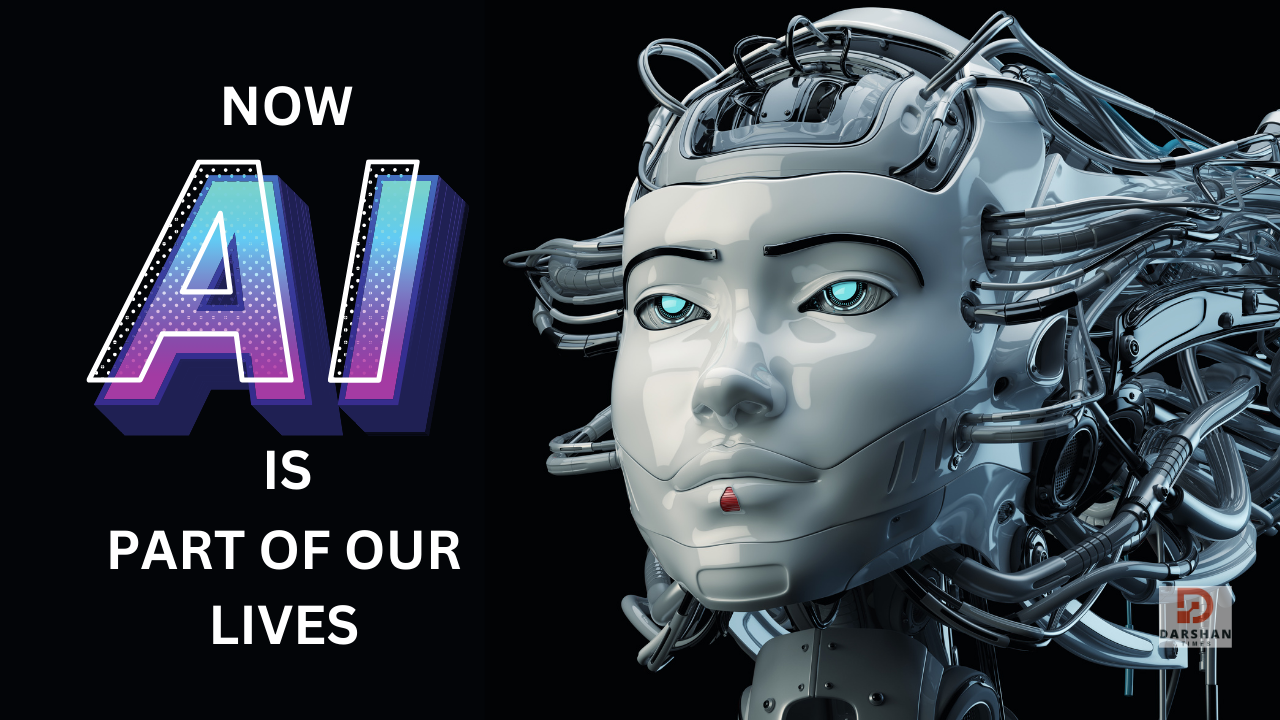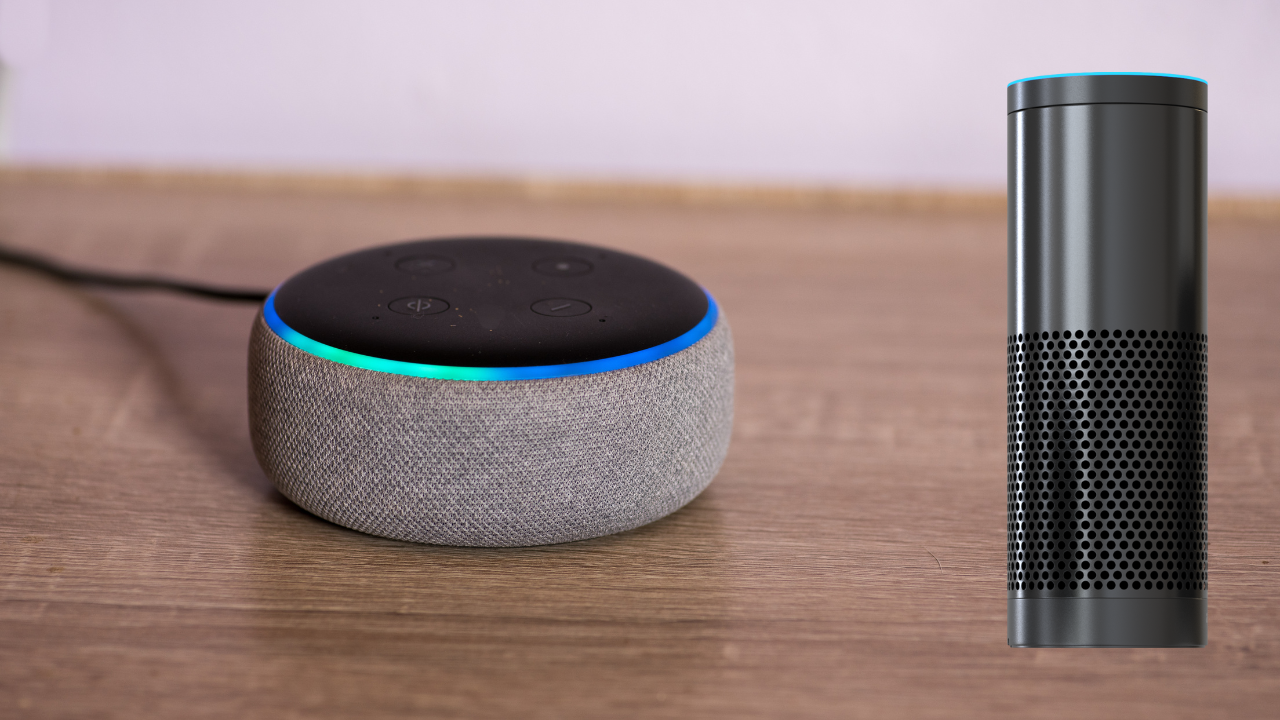10 Examples of AI We Are Using in Daily Life in 2024

In today’s digital age, artificial intelligence (AI) has woven its way into our daily lives, offering innovative solutions and transforming traditional processes across various sectors. Let’s delve deeper into each example of AI application and explore the specific tools and websites that are making these advancements possible.
Table of Contents
Toggle1. AI in Personal Assistants
AI-driven personal assistants like Siri, Alexa, and Google Assistant have become ubiquitous, revolutionizing how we manage our daily tasks. These assistants utilize natural language processing (NLP) and machine learning algorithms to understand and respond to voice commands efficiently. They help in scheduling appointments, setting reminders, sending messages, and even controlling smart home devices seamlessly.
AI Tools:-
Amazon Alexa: Amazon’s AI-powered assistant is integrated into Echo devices and offers a wide range of skills and functionalities.

- Wake Word: You activate Alexa with a wake word, like “Alexa” or “Echo.”
- Voice Command: Speak your request clearly. Alexa uses natural language processing (NLP) to understand what you’re saying.
- Cloud Processing: Your request is sent to Amazon’s cloud servers where Alexa fulfills it.
- Response: Alexa responds back through your device’s speaker, either by completing your request or providing information.
Alexa’s Functions for Students:
Alexa can be a valuable asset for students in several ways:
- Information Retrieval: Need a quick fact or definition? Ask Alexa! She can access tons of information online and answer your questions.
- Flashcard Tutor: Use Alexa’s skills like Quizlet or Brainscape to turn flashcards into a voice-based study session.
- Timer and Alarms: Stay on track with deadlines by setting timers and alarms with your voice.
- Reading Assistance: Alexa can read ebooks aloud, allowing you to listen to study materials while multitasking.
- Concentration Boost: Play calming music or white noise through Alexa to create a more focused study environment.
- Research Assistant: Need help finding credible sources? Alexa can point you in the right direction for scholarly articles and research papers.
Overall, Alexa can be a handy tool to streamline your studies, manage your time, and access information on the go.
Google Assistant:
Google’s virtual assistant is available on smartphones and smart speakers, providing personalized assistance based on user interactions.

Like Alexa, Google Assistant is powered by AI and can be accessed through various devices including phones, smart speakers, and even laptops. Here’s a quick comparison:
- Similarities: Both use voice commands, offer information retrieval, can set alarms and timers, and connect to smart home devices.
- Differences: Google Assistant might have a slight edge in integrating with other Google services like Gmail and Calendar.
Apple Siri:
Siri is deeply integrated into Apple devices, offering voice-activated commands and personalized recommendations.

Here’s a breakdown of how Siri functions:
- Activation: Trigger Siri with either a simple “Hey Siri” or by pressing a button depending on your device.
- Voice Command: Speak your request clearly. Siri utilizes natural language processing to decipher your instructions.
- Apple Servers: Your request is sent to Apple’s secure servers for processing.
- Response: Siri delivers the information or completes the action through your device’s speaker or screen.
How Siri Can Help Students
Students can leverage Siri’s capabilities in numerous ways:
- Homework Helper: Stuck on a math problem or a historical date? Ask Siri! She can access a vast amount of information online to answer your questions.
- Research Partner: Need reliable sources for a project? Siri can search the web and suggest scholarly articles or websites.
- Organizational Guru: Set reminders, deadlines, and alarms through voice commands to stay on top of your academic schedule.
- Dictation Dynamo: Tired of typing notes? Use Siri’s dictation feature to capture your thoughts and ideas hands-free.
- Quick Translator: Need to translate a foreign phrase for your language class? Siri can translate between many languages in real-time.
- Entertainment During Breaks: Take a well-deserved study break and ask Siri to play music, read audiobooks, or even tell you a joke!
2. AI in Social Media

AI plays a crucial role in shaping our social media experiences, from content curation to personalized advertising.
Apps/Websites:
- Facebook: Uses AI algorithms for content moderation, facial recognition, and targeted advertising.
- Instagram: Leverages AI to recommend posts, filter inappropriate content, and enhance photo quality.
- LinkedIn: Utilizes AI for job recommendations, content suggestions, and personalized networking.
Facebook:
- Content Moderation:
Imagine millions of posts uploaded daily. AI helps Facebook scan content for potential violations like hate speech or violence. This helps maintain a safer online environment. - Facial Recognition:
Ever been automatically tagged in a photo with a friend? AI helps Facebook recognize faces, making photo tagging a breeze. However, there are privacy concerns to consider with facial recognition, and it’s important to understand your options for controlling this feature. - Targeted Advertising:
Have you noticed ads popping up that seem eerily relevant to your interests? AI analyzes your activity on Facebook to understand your preferences. This allows advertisers to target their campaigns more effectively, but it can also raise questions about data privacy.
Instagram:
- Post Recommendations:
Feeling lost in the sea of Instagram posts? AI curates your feed based on your past likes, follows, and engagement. This helps you discover content you might genuinely enjoy. - Filtering Inappropriate Content:
Similar to Facebook, AI helps Instagram identify and remove inappropriate content, promoting a more positive user experience. - Photo Enhancement:
Want your photos to shine? Some AI tools on Instagram can automatically adjust lighting, color, and suggest filters to make your pictures pop.
LinkedIn:
- Job Recommendations:
Tired of endless job searches? AI analyzes your profile and skills to suggest relevant job openings that might be a good fit for your career goals. - Content Suggestions:
Stay informed and engaged with your professional network. AI recommends articles and posts related to your industry and interests, keeping you up-to-date on the latest trends in your field. - Personalized Networking:
Looking to expand your professional circle? AI suggests potential connections based on your skills, experience, and mutual connections, making it easier to build a strong professional network.
3. AI in Healthcare

a. AI in Diagnostics
AI-powered diagnostic tools aid medical professionals in interpreting complex medical images and data swiftly and accurately.
- Zebra Medical Vision: Provides AI solutions for radiology and diagnostic imaging, assisting in early disease detection.
- Aidoc: Offers AI software that analyzes medical images to prioritize critical cases and improve diagnostic accuracy.
b. AI in Telemedicine
Telemedicine platforms leverage AI to connect patients with healthcare providers remotely, offering diagnosis and treatment advice.
- Teladoc Health: Integrates AI into virtual consultations, enabling patients to receive medical advice from qualified professionals remotely.
- Babylon Health: Uses AI chatbots to assess symptoms and provide preliminary medical guidance.
4. AI in Transportation

AI is reshaping transportation with advancements in autonomous vehicles and route optimization.
- Tesla Autopilot: Tesla’s autonomous driving system utilizes AI for self-driving capabilities, enhancing road safety and efficiency.
- Waymo: Develops AI-powered self-driving technology for commercial vehicles and ride-hailing services.
5. AI in Entertainment

AI enhances entertainment experiences by personalizing content recommendations and improving gaming interactions.
- Netflix: Utilizes AI algorithms to suggest movies and TV shows based on viewing history and preferences.
- Spotify: Leverages AI to curate personalized music playlists and recommend new artists based on listening habits.
6. AI in Banking and Finance

AI drives innovation in banking and finance, powering fraud detection, customer service, and personalized financial advice.
- Kasisto: Develops conversational AI platforms for banking, enabling natural language interactions and personalized banking experiences.
- Robinhood: Integrates AI algorithms for stock trading and investment recommendations.
7. AI in Retail

Retailers use AI for inventory management, customer analytics, and personalized shopping experiences.
- Amazon: Implements AI for product recommendations, supply chain optimization, and automated customer service.
- Sephora Virtual Artist: Utilizes AI for virtual try-on experiences, allowing customers to preview makeup products digitally.
8. AI in Smart Homes

AI-powered smart home devices enhance convenience and energy efficiency by learning user preferences.
Convenience at Your Fingertips (or Voice):
- Personalized Automation: Imagine lights automatically dimming as the sun sets or the thermostat adjusting based on your daily routine. AI learns your preferences and creates personalized automations, making your life easier.
- Voice Control: No more scrambling for light switches or fiddling with thermostats. AI-powered virtual assistants like Alexa or Google Assistant allow you to control various aspects of your home with simple voice commands.
- Proactive Assistance: AI can anticipate your needs. A smart coffee maker might start brewing a pot as you wake up, or the air conditioner might adjust before you even feel a temperature shift.
- Nest: Develops AI-enabled thermostats that adjust temperatures based on occupancy patterns and weather forecasts.
- Ring: Utilizes AI for smart security cameras that provide real-time alerts and video monitoring.
9. AI in Education

AI tools in education personalize learning experiences and streamline administrative tasks.
Grammarly (Writing Wizard): This AI assistant acts like a virtual grammar guru, analyzing your writing in real-time. It corrects errors, suggests improvements in sentence structure and clarity, and even helps with plagiarism detection. Grammarly ensures your written assignments are polished and error-free, allowing you to focus on conveying your ideas effectively.
Otter.ai (Your Personal Lecture Scribe): Say goodbye to frantic note-taking! Otter.ai uses AI to transcribe lectures and conversations in real-time. This intelligent tool captures every word, allowing you to focus on understanding the concepts being discussed. You can then review the transcript later, highlight key points, and organize your study sessions more efficiently.
QuillBot (Paraphrase Powerhouse): Feeling stuck while paraphrasing for a research paper? QuillBot comes to the rescue. This AI tool can rephrase sentences and paragraphs while maintaining the original meaning. It offers various modes for summarizing, simplifying, or even expanding text, making it a versatile aid for understanding complex concepts and expressing them in your own words.
Socratic by Google (AI Study Buddy): Stuck on a math problem or a science concept? Socratic by Google is like having a virtual tutor at your fingertips. This AI tool can answer your questions across various subjects, providing step-by-step explanations and suggesting relevant learning resources. It can help you grasp difficult topics, identify areas where you need more practice, and ultimately deepen your understanding.
Anki (Smart Spaced Repetition): While not strictly an AI tool, Anki utilizes spaced repetition algorithms to optimize your memorization. You create flashcards with questions and answers, and Anki schedules reviews based on your recall difficulty. This evidence-based approach helps you retain information more effectively, making it a valuable tool for studying vocabulary, historical dates, or scientific formulas.
10. AI in Security and Surveillance

AI enhances security systems with facial recognition, anomaly detection, and predictive analytics.
- Verkada: Provides AI-powered security cameras with intelligent video analytics for proactive threat detection.
- Norton LifeLock: Integrates AI into cybersecurity solutions for real-time threat monitoring and response.
conclusion:
- Pervasiveness: AI has become an undeniable presence in our daily lives.
- Benefits: It empowers us to make smarter decisions, streamline processes, and create more enjoyable user experiences.
- Future Potential: AI is still in its early stages, and exciting advancements are on the horizon. These advancements can reshape how we interact with technology and the world around us.
Overall, your statement effectively highlights the transformative power of AI in our world. As AI continues to evolve, it will be fascinating to see how it shapes the future!
FAQs
How is AI shaping the future of healthcare? AI is revolutionizing healthcare by improving diagnostic accuracy, enabling remote patient monitoring, and accelerating drug discovery processes.
Is AI replacing human jobs? AI is automating repetitive tasks but also creating new job opportunities in AI development, data science, and human-AI collaboration.
What are the ethical concerns surrounding AI? Ethical considerations include data privacy, algorithm bias, accountability for AI decisions, and potential job displacement.
How can individuals benefit from AI in daily life? AI enhances daily life by offering personalized recommendations, simplifying tasks, and enabling remote access to services like healthcare and education.
What are the challenges of AI adoption? Challenges include data security and privacy concerns, ethical dilemmas in AI decision-making, and the need for continuous upskilling to leverage AI effectively.

